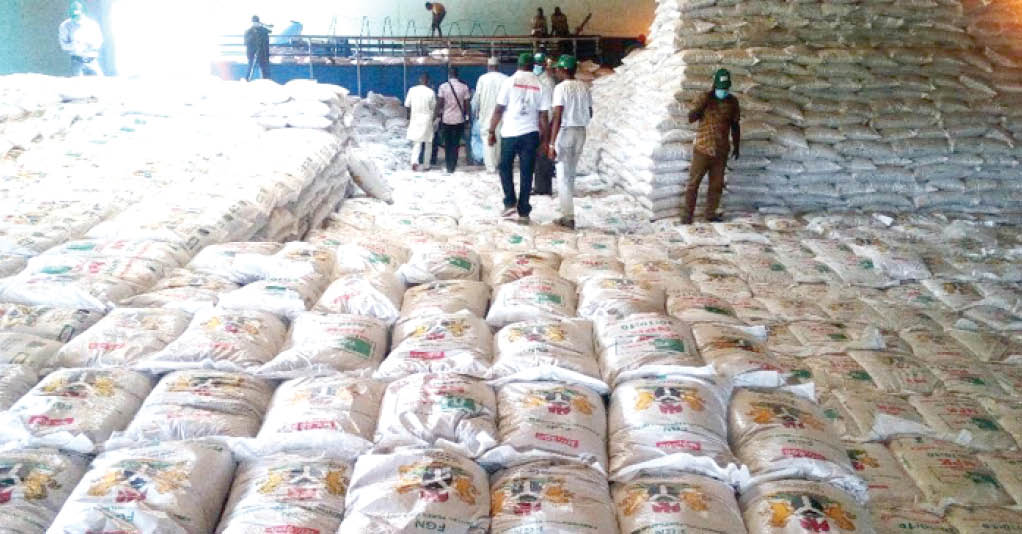FG to commence distribution of CBN fertiliser
The Federal Ministry of Agriculture and Food Security is set to commence the distribution of 2.15 million bags of fertiliser donated to it by the Central Bank of Nigeria (CBN). However, sources in the ministry said the distribution was delayed because it was trying to check the allegation that the fertilisers had expired. “It is […]

fertiliser
The Federal Ministry of Agriculture and Food Security is set to commence the distribution of 2.15 million bags of fertiliser donated to it by the Central Bank of Nigeria (CBN).
However, sources in the ministry said the distribution was delayed because it was trying to check the allegation that the fertilisers had expired.
“It is not as if the CBN bought a new fertiliser, these are leftover products of the former CBN governor, Godwin Emefiele’s failed Anchor Borrower Programme (ABP). These are the fertilisers the CBN handed over to the ministry. There are issues the ministry needed to clarify before commencing the distribution. There was the allegation that some of the fertilisers have expired,” a source in the ministry told Daily Trust on Sunday.
The Director of Farm Input Supply Services, Abana Waziri Abba, an engineer, refuted the claim when our reporter approached him, but however admitted that the department had taken samples of the said fertiliser products to three laboratories to ascertain it quality.
It did so because the department is saddled with the responsibility of ensuring quality fertiliser in the country.
Abba told Daily Trust on Sunday that the samples of the fertiliser were taken for analysis in three laboratories located in Kaduna, Ahmadu Bello University, Zaria and Bayero University, Kano, adding that the results showed that the fertilisers were still in good condition with just “little” issue and safe for farmers to use.
He said that having identified the locations and tested the quality of the products, the ministry would soon commence the distribution, zone-by-zone. He, however, did not explain how the ministry would distribute the products to farmers across the country.
Breakdown of quantity
The fertilisers donated by CBN were 2.15 million bags (each bag weighing 50 kilograms) made up of various blends valued at over N100 billion at the current market prices.
A breakdown of the details and quantity of the various fertiliser blends showed NPK 20-10-10 545,000 (27,250 tonnes), NPK 27-13-13 542,200 (27,110.00 tonnes), NPK 15-15-15 378,091 (18,904.55 tonnes), UREA 635,444 (31,772.18 tons), SSP 50,000 (2,500 tonnes), amounting to 2,150,735 bags about 107,536.73 metric tonnes.
No more direct intervention
During Emefiele’s tenure, the CBN directly intervened in the sector, sinking over N1 trillion in it through the Anchor Borrowers’ Programme and other schemes.
The interventions drew criticisms from many farmers’ associations, agricultural experts and the then ministers of agriculture and rural development
However, the present governor of the Central Bank of Nigeria, Mr Olayemi Cardoso, during the donation events, said the apex bank was recalibrating its focus towards its core mandate of ensuring monetary and price stability and would no longer directly get involved in the development of finance interventions.
“The CBN made the decision to donate the fertilisers to Nigerian farmers through the Federal Ministry of Agriculture and Food Security, which possesses the institutional knowledge and infrastructure to effectively distribute the commodity to the last mile.
“This partnership was aimed at supporting the Federal Ministry of Agriculture and Food Security’s efforts to enhance food productivity and security, ultimately curbing food inflation and reinforcing CBN’s pursuit of price stability,” the bank also noted in a statement shortly afterwards.
The CBN said the fertiliser was a donation to Nigerian farmers; therefore, expected to be distributed to farmers across the country free of charge.
With the onset of rains in many communities, experts have called for early distribution of inputs to farmers as doing so late will affect their productivity.
